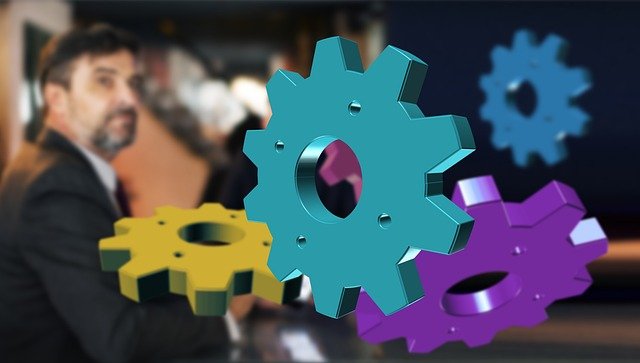Ultimate Frisbee: The Sport of Flying Discs and Soaring Spirits
In a world dominated by traditional ball sports, a dynamic and inclusive game has been quietly revolutionizing recreational and competitive landscapes alike. Ultimate Frisbee, with its unique blend of athleticism, strategy, and sportsmanship, has captured the hearts of millions worldwide. This article delves into the fascinating world of Ultimate, exploring its rich history, intricate gameplay, and the profound impact it has on players and communities.

The Birth of a Flying Phenomenon
The story of Ultimate Frisbee begins in the late 1960s at Columbia High School in Maplewood, New Jersey. A group of students, led by Joel Silver, Jonny Hines, and Buzzy Hellring, sought to create a new game that combined the joy of throwing a frisbee with the strategic elements of traditional team sports. Inspired by the popularity of Frisbee on college campuses and the structure of American football, they developed a set of rules that would eventually evolve into the sport we know today.
The first game of Ultimate was played in 1968 in the school parking lot, marking the beginning of a sporting revolution. The students’ enthusiasm for the game was infectious, and it quickly spread to nearby high schools and colleges. By 1970, the first intercollegiate game was played between Rutgers and Princeton, mirroring the first intercollegiate American football game played a century earlier.
As the sport gained traction, it began to develop its own unique culture and ethos. The founders emphasized the importance of fair play and sportsmanship, implementing a system of self-officiating that remains a hallmark of Ultimate to this day. This spirit of the game, known as “Spirit of the Game” (SOTG), became a fundamental principle, setting Ultimate apart from other competitive sports.
The Mechanics of Flight: Understanding Ultimate’s Gameplay
At its core, Ultimate Frisbee is a game of precision, strategy, and teamwork. Played on a rectangular field with end zones at each end, the objective is simple: score points by catching the disc in the opponent’s end zone. However, the execution of this objective is where the true complexity and beauty of the sport emerge.
Players are not allowed to run with the disc, adding a unique challenge to the game. Instead, they must pass the disc to teammates while avoiding defenders who attempt to intercept or block passes. This creates a dynamic flow of play, with rapid transitions between offense and defense.
The disc itself plays a crucial role in the game’s strategy. Unlike a ball, a flying disc can be manipulated to curve, hover, or quickly change direction mid-flight. Mastering these throws requires significant skill and practice, adding depth to the game’s tactical elements.
One of the most distinctive features of Ultimate is its lack of referees in most non-professional games. Players are responsible for calling their own fouls and resolving disputes on the field. This self-officiating system is rooted in the sport’s emphasis on fair play and mutual respect, fostering a unique culture of integrity and sportsmanship.
The Physical and Mental Demands of Ultimate
Ultimate Frisbee is a sport that demands a diverse set of physical attributes from its players. The constant running, quick changes of direction, and explosive movements required to catch and throw the disc make it an excellent form of cardiovascular exercise. Players develop exceptional hand-eye coordination, agility, and spatial awareness as they navigate the field and execute precise throws and catches.
Endurance is a key factor in Ultimate, with games often lasting up to two hours. Players must maintain their speed and agility throughout the match, making split-second decisions and adjustments. This combination of physical exertion and mental acuity makes Ultimate a truly holistic sport, challenging both body and mind.
The mental aspects of Ultimate are equally demanding. Players must constantly read the field, anticipate opponents’ movements, and make strategic decisions about when to throw, where to cut, and how to defend. The self-officiating nature of the sport also requires players to develop strong communication skills, emotional intelligence, and the ability to resolve conflicts fairly and efficiently.
Moreover, the “Spirit of the Game” principle encourages players to compete at their highest level while maintaining respect for their opponents, teammates, and the rules of the game. This unique aspect of Ultimate fosters personal growth, teaching valuable life skills such as integrity, conflict resolution, and sportsmanship.
From Grassroots to Global: The Growth of Ultimate
Since its inception, Ultimate Frisbee has experienced remarkable growth, evolving from a niche college sport to a globally recognized competitive discipline. The formation of the Ultimate Players Association (now USA Ultimate) in 1979 marked a significant milestone in the sport’s organization and development. This governing body helped standardize rules, organize tournaments, and promote the sport on a national level.
Internationally, the sport has gained significant traction. The World Flying Disc Federation (WFDF), founded in 1985, oversees the global development of disc sports, including Ultimate. Today, Ultimate is played in over 80 countries, with national associations and competitive leagues flourishing worldwide.
The sport’s growth has been particularly notable in countries like Canada, Australia, Japan, and many European nations. International competitions, such as the World Ultimate Club Championships and the World Games, have further elevated the sport’s profile and competitive standards.
One of the most significant developments in Ultimate’s journey was its recognition by the International Olympic Committee (IOC) in 2015. While it is not yet an Olympic sport, this recognition has opened up new opportunities for funding, visibility, and potential inclusion in future Olympic Games.
The Inclusive Nature of Ultimate: Breaking Barriers in Sport
One of Ultimate Frisbee’s most commendable attributes is its emphasis on inclusivity and equality. From its early days, the sport has been at the forefront of promoting gender equality in team sports. Mixed-gender play is common at all levels of Ultimate, from recreational leagues to international competitions.
The sport’s inclusive nature extends beyond gender. Ultimate’s low barrier to entry – requiring minimal equipment and adaptable to various playing surfaces – makes it accessible to people of diverse socioeconomic backgrounds. Community-based leagues and pickup games are common, fostering a sense of belonging and social connection among players.
Furthermore, Ultimate has shown remarkable adaptability, with variations of the sport developed for different age groups and abilities. Youth leagues introduce children to the sport’s values early on, while masters divisions allow older players to continue competing. Adaptations for players with disabilities, such as wheelchair Ultimate, demonstrate the sport’s commitment to inclusivity.
This inclusive approach has not only contributed to the sport’s growth but has also positioned Ultimate as a tool for social change. Programs using Ultimate to promote youth development, conflict resolution, and cross-cultural understanding have emerged in various parts of the world, showcasing the sport’s potential to make a positive impact beyond the playing field.
The Technical Evolution: Advancements in Disc Design and Strategy
As Ultimate Frisbee has grown, so too has the technology and strategy surrounding the sport. The evolution of disc design has been a fascinating aspect of Ultimate’s development. Early games were played with traditional Frisbees, but as the sport became more competitive, specialized discs were developed to meet the specific needs of Ultimate players.
Modern Ultimate discs are engineered for optimal flight characteristics, durability, and grip. Manufacturers like Discraft and Innova have created discs that can maintain stable flight patterns even in windy conditions, allowing for more precise and longer throws. The standardization of disc specifications by governing bodies has ensured fair play while still allowing for innovation in design.
Strategic elements of the game have also evolved significantly. Teams now employ complex offensive and defensive systems, reminiscent of those seen in more established team sports. Zone defenses, various styles of man-to-man marking, and specialized offensive formations have all become part of the Ultimate playbook.
The introduction of professional leagues, such as the American Ultimate Disc League (AUDL) and Premier Ultimate League (PUL), has further accelerated strategic innovation. These leagues have brought increased visibility to the sport and have served as a testing ground for new tactics and playing styles.
Additionally, the use of analytics and video analysis has become more prevalent in high-level Ultimate. Teams now study game footage, track player statistics, and use data to inform their strategies and player development programs. This analytical approach has added a new dimension to coaching and team management in Ultimate.
The Spirit of the Game: Ultimate’s Unique Ethos
Perhaps the most distinguishing feature of Ultimate Frisbee is its adherence to the “Spirit of the Game” (SOTG) principle. This concept goes beyond simple sportsmanship; it is a fundamental philosophy that underpins every aspect of the sport. SOTG emphasizes fair play, respect for opponents, and the joy of competition over winning at all costs.
In practice, SOTG manifests in several ways. The most visible is the self-officiating system used in most levels of play. Players are responsible for calling their own fouls and violations, and disputes are resolved through respectful dialogue on the field. This system not only reduces the need for external officials but also teaches players valuable skills in communication, conflict resolution, and integrity.
SOTG also encourages players to compete at their highest level while maintaining respect for the rules, their opponents, and the sport itself. It’s not uncommon to see players from opposing teams congratulating each other on good plays or helping an opponent up after a collision. This culture of mutual respect creates a unique atmosphere that sets Ultimate apart from many other competitive sports.
The emphasis on Spirit has faced challenges as the sport has grown more competitive, particularly at elite levels. Balancing the desire to win with the principles of SOTG has been a topic of ongoing discussion within the Ultimate community. However, the sport’s commitment to maintaining this ethos, even as it pursues higher levels of competition and professionalization, remains strong.
Many players and advocates argue that SOTG is not just a quaint tradition but a core strength of the sport. It teaches valuable life skills, promotes positive social interactions, and creates a more enjoyable playing experience for all involved. As Ultimate continues to grow, preserving and promoting the Spirit of the Game remains a priority for players, coaches, and governing bodies alike.
Ultimate in Education: A Tool for Youth Development
The unique characteristics of Ultimate Frisbee have made it an increasingly popular choice in educational settings. Schools and youth programs around the world are incorporating Ultimate into their physical education curricula and extracurricular activities, recognizing its potential to teach important life skills alongside physical fitness.
One of the primary benefits of Ultimate in education is its accessibility. The sport requires minimal equipment and can be played on various surfaces, making it feasible for schools with limited resources. Its non-contact nature also makes it a safer option compared to some traditional sports, appealing to educators concerned about student safety.
The self-officiating aspect of Ultimate provides valuable learning opportunities for students. It teaches responsibility, honesty, and conflict resolution skills – attributes that are valuable both on and off the field. Students learn to communicate effectively, make fair judgments, and take ownership of their actions, all within the context of a fun, engaging sport.
Ultimate’s emphasis on teamwork and strategy also aligns well with educational goals. Players must work together, developing communication skills and learning to trust and support their teammates. The strategic elements of the game encourage critical thinking and decision-making under pressure, skills that are transferable to academic and professional settings.
Moreover, the inclusive nature of Ultimate makes it an excellent tool for promoting diversity and gender equality in schools. Mixed-gender play is common in Ultimate, providing opportunities for boys and girls to compete together on equal footing. This can help break down gender stereotypes and foster mutual respect among students.
Several organizations have developed programs specifically designed to bring Ultimate into schools and youth programs. These initiatives often combine Ultimate instruction with character education, using the sport as a vehicle to teach values like integrity, respect, and perseverance.
The Environmental Impact: Ultimate as a Green Sport
In an era of increasing environmental awareness, Ultimate Frisbee stands out as a relatively eco-friendly sport. Its minimal equipment requirements and adaptability to various playing surfaces mean that it has a lower environmental impact compared to many traditional sports.
The primary piece of equipment in Ultimate – the disc itself – is durable and long-lasting. A single disc can be used for hundreds of games, reducing waste compared to sports that require frequent replacement of balls or other equipment. When discs do reach the end of their lifespan, many are recyclable, further minimizing environmental impact.
Ultimate’s flexibility in terms of playing surface also contributes to its green credentials. While dedicated Ultimate fields exist, the sport can be played on existing grass fields, beaches, or even indoor courts. This versatility reduces the need for specialized facilities and the associated environmental costs of construction and maintenance.
The sport’s community has also shown a commitment to environmental stewardship. Many Ultimate tournaments and leagues have implemented sustainability initiatives, such as reducing single-use plastics, promoting carpooling, and partnering with environmental organizations. Some events have even achieved carbon-neutral status through careful planning and offsetting measures.
Furthermore, the ethos of Ultimate, with its emphasis on respect and responsibility, often extends to environmental consciousness. Many Ultimate players and organizations are actively involved in environmental causes, using the sport as a platform to promote sustainability and eco-friendly practices.
As the sport continues to grow, there is potential for Ultimate to set an example for other sports in terms of environmental responsibility. From eco-friendly disc manufacturing to sustainable tournament practices, the Ultimate community is well-positioned to lead innovations in green sporting events.
The Future of Ultimate: Challenges and Opportunities
As Ultimate Frisbee continues to evolve and gain recognition, it faces both exciting opportunities and significant challenges. The sport stands at a crossroads, balancing its grassroots origins and unique culture with the potential for further growth and professionalization.
One of the primary challenges facing Ultimate is increasing mainstream visibility and recognition. While the sport has a devoted following, it still lacks the widespread public awareness enjoyed by traditional sports. Efforts to introduce Ultimate to new audiences, particularly through media coverage and school programs, will be crucial for its continued growth.
The potential inclusion of Ultimate in the Olympic Games represents both an opportunity and a challenge. While Olympic recognition would bring unprecedented exposure and resources to the sport, it also raises questions about how to maintain the sport’s unique culture and self-officiating system at the highest levels of competition.
Another area of focus is the development of professional leagues and the creation of sustainable career paths for top players. While professional Ultimate leagues exist in some countries, they are still in their early stages. Balancing professionalization with the sport’s amateur roots and Spirit of the Game principles will be a delicate task for Ultimate’s governing bodies.
Technology is likely to play an increasingly important role in Ultimate’s future. From advanced disc designs to the use of analytics in training and strategy, technological innovations could significantly impact how the sport is played and experienced. At the same time, maintaining the accessibility and simplicity that make Ultimate appealing to many players will be important.
The global expansion of Ultimate presents both opportunities and challenges. While the sport’s growth in new regions is exciting, ensuring consistent rules, standards, and Spirit of the Game across diverse cultures and playing styles will be crucial for maintaining the sport’s integrity.
Equity and inclusion will continue to be central themes in Ultimate’s development. Building on its history of mixed-gender play, the sport has the opportunity to lead in promoting gender equality in athletics. Additionally, efforts to make Ultimate more accessible to underserved communities and individuals with disabilities will be important for the sport’s inclusive growth.
The Enduring Appeal of Ultimate Frisbee
Ultimate Frisbee has come a long way from its humble beginnings in a New Jersey parking lot. Today, it stands as a testament to the power of innovation in sports, offering a unique blend of athleticism, strategy, and sportsmanship. Its growth from a casual college pastime to a globally recognized sport with Olympic aspirations is a remarkable journey, reflecting the passion and dedication of its players and organizers.
The enduring appeal of Ultimate lies not just in its exciting gameplay, but in the values it promotes. The Spirit of the Game, with its emphasis on fair play, respect, and personal responsibility, offers a refreshing alternative to the win-at-all-costs mentality often seen in competitive sports. This ethos, combined with the sport’s inclusivity and accessibility, makes Ultimate more than just a game – it’s a community and a way of life for many of its players.
As Ultimate continues to evolve, it faces the challenge of balancing growth and professionalization with maintaining its core principles and unique culture. However, the sport’s history of adapting and innovating suggests that it is well-equipped to meet these challenges head-on.
Whether played on a beach, in a park, or in a professional stadium, Ultimate Frisbee continues to capture the imagination of players and spectators alike. Its combination of physical skill, mental strategy, and positive values offers something truly unique in the world of sports. As it soars into the future, Ultimate Frisbee remains a shining example of how a sport can be both fiercely competitive and deeply principled, fostering not just great athletes, but also great individuals.
In a world that often seems divided, Ultimate Frisbee stands as a beacon of unity, fair play, and the pure joy of athletic competition. As the disc flies from hand to hand, it carries with it the spirit of a sport that has the power to bring people together, challenge them to be their best selves, and remind us all of the transformative power of play. The future of Ultimate Frisbee is bright, and its impact on the world of sports and beyond is sure to be felt for generations to come.






